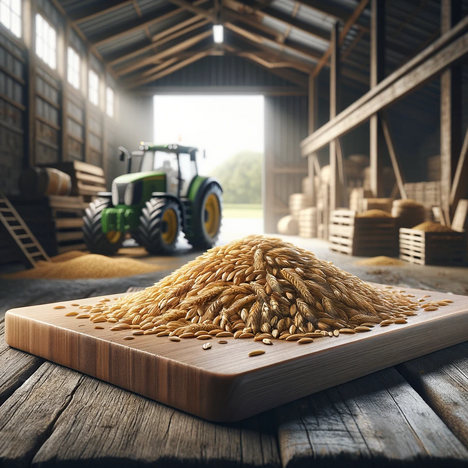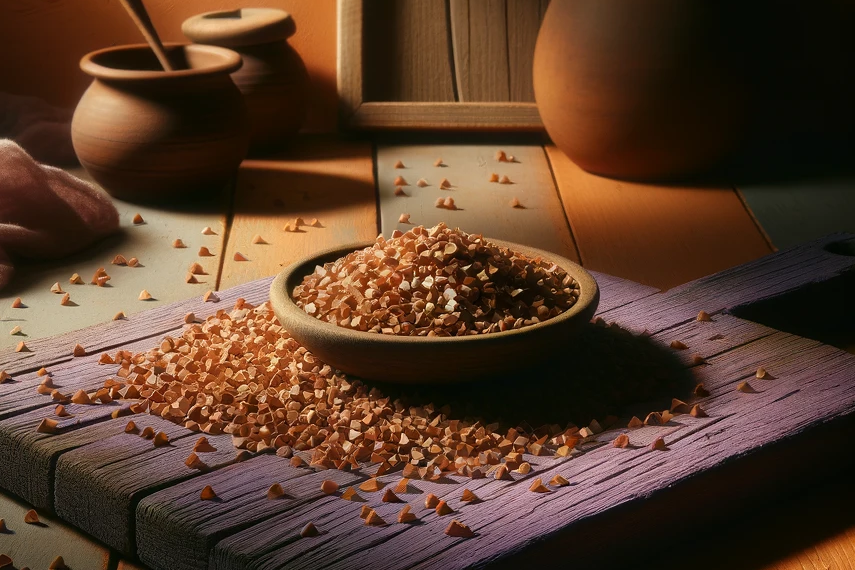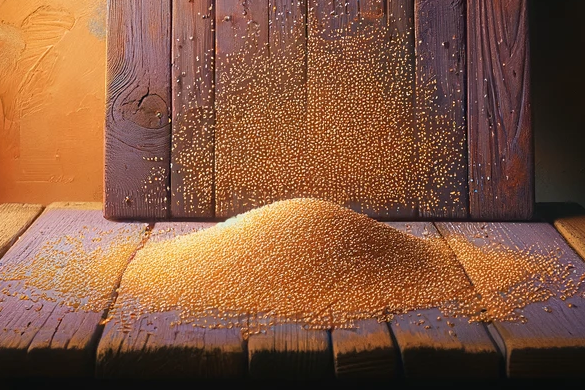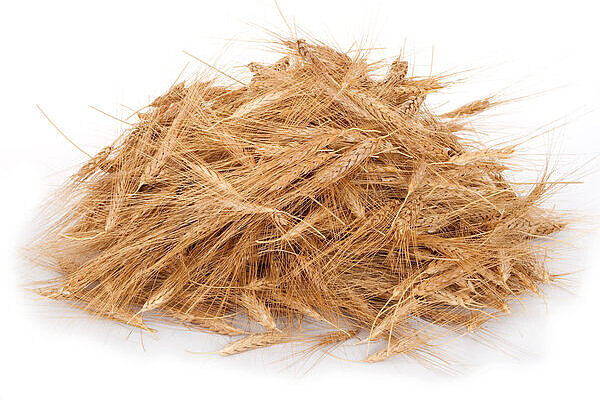Barley flakes

What are barley flakes?
Barley flakes are made from barley, a grain that is rich in nutrients, fiber and vitamins. The process by which barley flakes are made is similar to that of oatmeal production: the barley grains are steamed, rolled and then dried. This process makes the barley's nutrients easier to digest and more accessible to your dog.
Nutritional profile and benefits
Barley flakes offer a variety of health benefits for your dog:
Rich in fiber
Barley flakes are an excellent source of fiber, which can contribute to digestive health. It helps to keep your dog's bowel movements regular and can help prevent constipation.
Energy source
As a source of carbohydrates, barley flakes provide long-lasting energy, which is particularly useful for active dogs or dogs that are recovering.
Heart health
Barley flakes contain beta-glucans, a type of soluble fiber that has been shown to help lower blood cholesterol levels and support heart health.
Support with weight control
For dogs that are prone to obesity, barley flakes can be a good supplement due to their high fiber content and low fat content. They provide a long-lasting feeling of satiety and can therefore help to control weight.
Possible disadvantages
Despite the many benefits, there are also some aspects that should be considered when feeding barley flakes to dogs:
Allergies and intolerances
Some dogs may be allergic or intolerant to cereals. Monitor your dog closely when introducing barley flakes into their diet to identify any potential negative reactions early on.
Carbohydrate content
For dogs that are prone to or already have diabetes, the carbohydrate content of their diet should be monitored. Barley flakes, like other cereals, are rich in carbohydrates.
The right amount
As with any food supplement, it is important to feed the right amount. Too much can lead to obesity and associated health problems.
Incorporating it into your dog's diet
If you decide to incorporate barley flakes into your dog's diet, start with small amounts and observe how your dog responds. Mix the flakes into the normal food to ensure a balanced diet. Make sure that the barley flakes are unsweetened and as natural as possible to avoid additives.
Barley flakes can be a valuable addition to your dog's diet if used correctly. They offer a range of health benefits, from aiding digestion to promoting heart health. However, it is important to be aware of any allergies or intolerances and adjust the amount accordingly.
If you notice any signs of hypersensitivity or poisoning in your dog, you should see your vet immediately. We are not a substitute for a vet, but we try to be as accurate as possible. Every dog reacts differently and we recommend you get a second opinion or consult your vet if in doubt.
Stay healthy and take good care of your four-legged friend!😊
Similar to Barley flakes
Oat flakes are a cereal product made from the grains of the oat plant. The grains are cleaned, steamed, roasted and rolled into flakes. Oat flakes are rich in fiber, protein, vitamins and minerals....
Buckwheat flakes are made from buckwheat, a pseudocereal that botanically belongs to the knotweed family. Buckwheat is gluten-free and has an aromatic, nutty taste. It has been cultivated and...
Millet flakes are made from millet grains, a gluten-free grain known for its high nutrient content. A special steaming and rolling process is used to form the grains into flakes, making them easier...
Wheat flakes are wheat grains that have been steamed, rolled and dried. They have a flat, oval shape and a yellowish color. Wheat flakes are often eaten as muesli or porridge, but are also used as...



